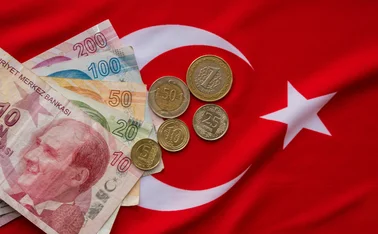
Small economies still trigger ‘substantial’ spillovers – IMF paper
New data on monetary policy shocks allows economists to track cross-border impact

Small, open economies can create “substantial” spillovers when setting monetary policy, contrary to standard theory, new research from the International Monetary Fund finds.
In a working paper, authors Marijn Bolhuis, Sonali Das and Bella Yao construct a new dataset of monetary policy shocks using high-frequency data from swaps markets in 29 countries. The data includes advanced and emerging economies.
Small, open economies are normally defined as those that are vulnerable to cross-border policy
Only users who have a paid subscription or are part of a corporate subscription are able to print or copy content.
To access these options, along with all other subscription benefits, please contact info@centralbanking.com or view our subscription options here: http://subscriptions.centralbanking.com/subscribe
You are currently unable to print this content. Please contact info@centralbanking.com to find out more.
You are currently unable to copy this content. Please contact info@centralbanking.com to find out more.
Copyright Infopro Digital Limited. All rights reserved.
As outlined in our terms and conditions, https://www.infopro-digital.com/terms-and-conditions/subscriptions/ (point 2.4), printing is limited to a single copy.
If you would like to purchase additional rights please email info@centralbanking.com
Copyright Infopro Digital Limited. All rights reserved.
You may share this content using our article tools. As outlined in our terms and conditions, https://www.infopro-digital.com/terms-and-conditions/subscriptions/ (clause 2.4), an Authorised User may only make one copy of the materials for their own personal use. You must also comply with the restrictions in clause 2.5.
If you would like to purchase additional rights please email info@centralbanking.com







